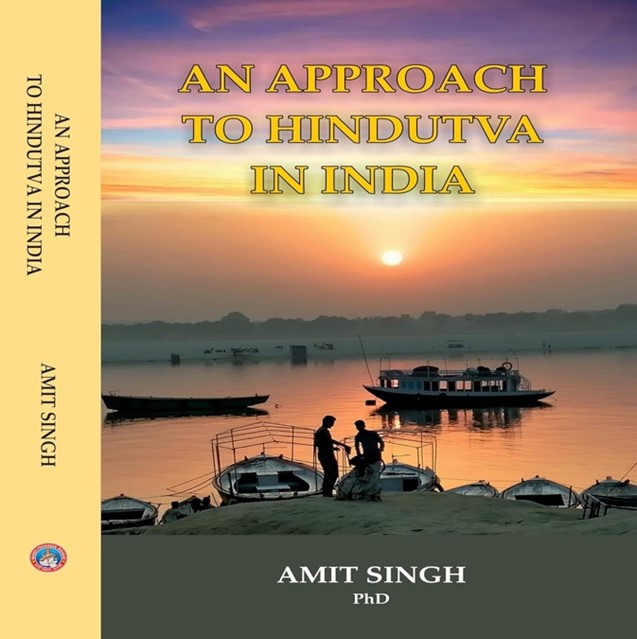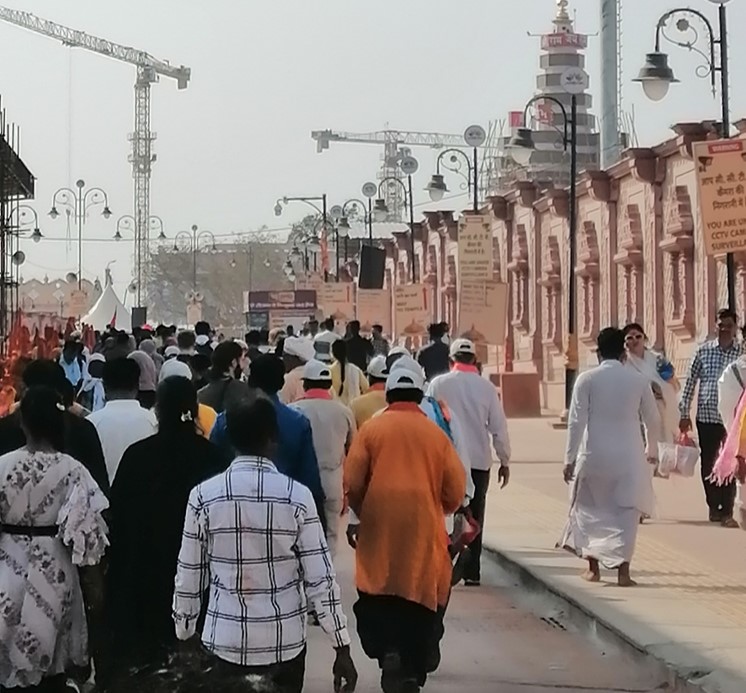Voices from the Sylff Community
Apr 4, 2024
Farewell to Religious Freedom: Persecution of Christians and Muslims in Hindu India
The ruling Bharatiya Janata Party of Prime Minister Modi has fanned the flames of Hindu nationalism to reap political gains at the expense of India’s religious minorities and the ideals of secular democracy and cultural diversity, writes Amit Singh (University of Coimbra, 2020–21), who notes that religious intolerance could also lead to the curtailing of academic and press freedom.
* * *
Alarm about an impending genocide of Muslims and the persecution of Christians in India has been sounded, triggering a crisis in human rights. Why has a nation known for religious diversity and cultural unity turned against its own citizens—particularly Christian and Muslim minorities? The answer lies in the ideology of Hindu nationalism (also known as Hindutva) that has guided the government of Narendra Modi, who came to power in 2014 seeking to transform secular India into a Hindu state. The rise of Modi as prime minister has emboldened Hindu extremists to carry out violence against religious minorities with tacit government approval. Hindu nationalists employ religion and nationalism to polarize the masses and capture political power.
Hindu nationalism is an ethnic ideology that seeks to achieve the dominance of the Hindu religion and culture over religious minorities. It is often associated with the belief that Indian Muslims and Christians are not loyal to the state and should thus be seen as foreigners. Hindu nationalists accuse them of defiling the purity of the country and Hindu culture and have promoted violence from time to time, such as the communal riots in Gujrat (2002), Orissa (2008), Delhi (2020), Gurugram (2023), and more recently Manipur (2023–24).
When India gained independence in 1947, it chose to become a secular state, rather than a Hindu nation. Secularism was considered essential to Indian democracy in order to prevent the Hindu majority from dominating religious minorities. Some Hindu nationalists who believe in the supremacy of the Hindu religion were troubled, however, by the idea of religious equality, which granted the same constitutional rights to Muslim minorities. The Indian Constitution guarantees the freedom of religion to all religious minorities, including Christians and Muslims. It affirms that all Indian citizens are equal, irrespective of their religion, and that the State shall maintain an equal distance from all religions, denying any role of religion in state affairs.
A Changed Situation
On January 22, 2024, Prime Minister Modi crossed the line separating religion and state by participating in the inauguration ceremony for a controversial Hindu temple in Ayodhya. This, at least metaphorically, made India a Hindu state. The visit to the Ayodhya Ram temple, built where a mosque was demolished in 1992 by Hindu fundamentalists, was a stark warning to all who still believed in religious equality and cultural diversity in secular India.
What does a Hindu India mean for Christian and Muslim minorities? It means “subordination to the Hindu majority and living as second-class citizens, just like the Jews under Nazi Germany,” a Christian priest in the north Indian district of Varanasi told me, adding, “Religious persecution of Christian minorities by Hindu fundamentalists has reached a critical stage.”
Musa Azmi, a Muslim activist in Varanasi, expressed concern that large-scale riots against Muslims may be organized by Hindu fundamentalists before the national election in 2024. “Even the local courts are taking decisions that favor the Hindu majority,” he complained. Indian religious minorities feel that they no longer enjoy the religious freedom and rights they had under the secular Congress Party until 2014.
In the first eight months of 2023, there were 525 attacks against Christians in India. Manipur has experienced several incidents of targeted violence against Christians amid ongoing civil unrest. According to a report by the United Christian Forum (UCF), Christians are also legally harassed, as the police have failed to prosecute perpetrators of mob violence. Statements made by ruling party leaders appear to have acted as a force multiplier, leading to greater impunity. The ruling Hindu nationalists party, Bharatiya Janata Party (BJP), has threatened Catholics in Goa with calls to “wipe out” the history of Portuguese presence.
Hijacking Religion for Political Gain
Most of the religiously motivated attacks have been carried out by ultranationalist, right-wing Hindu groups, such as Hindu Yuva Vahini, Hindu Jagran Manch, Rashtriya Swayamsevak Sangh (RSS), Bajrang Dal, and Vishva Hindu Parishad. These groups are linked to the ruling BJP, which uses the Hindu identity and religion to turn the sentiments of the majority against not only Christian and Muslim minorities but also the core of principles of the Indian Constitution, such as secularism, religious pluralism, and respect for cultural harmony and diversity. The Modi government has hijacked Hinduism and the national media to demonize religious minorities and the political opposition, who are portrayed as enemies of the Hindu religion.
Public acts of violence against Muslims appeal to core Hindu nationalist supporters. In their efforts to restore India’s lost glory, Hindu nationalists pursue such policies as securing the site of the Babri mosque for a Hindu temple and renaming places with Hindu names (often replacing Muslim names). The identities of religious minorities are being erased, and past events are being retold to create an “official” Hindu state history. Simultaneously, they have been stripping Jammu and Kashmir of its special status through the dilution of Article 370, and moving towards a new Citizenship Law with the potential to exclude Muslims from Indian citizenship.
Studies have shown that religious strife politically benefits the Hindu nationalist party, and this has encouraged violence against religious minorities and their sacred sites. Now that the Ram temple has been inaugurated, the controversial Gyanvapi Mosque in Varanasi appears to be the BJP’s next target in an effort to win the national election in 2029. This means that religious polarization and the vilification of religious minorities are likely to increase in the coming years.

The author published a study on the impact of Hindutva on secular democracy and human rights in 2024.
The use of the Hindu religion under the Modi government has reached new heights, leading to an increase in the Hindu majority’s hostility toward religious minorities. Not only religious freedom but academic and press freedom have also been severely curtailed in India. With the growing influence of Hindu nationalism on Indian society, the religious persecution of minorities is likely to escalate in tandem with a decline of secular democracy.

